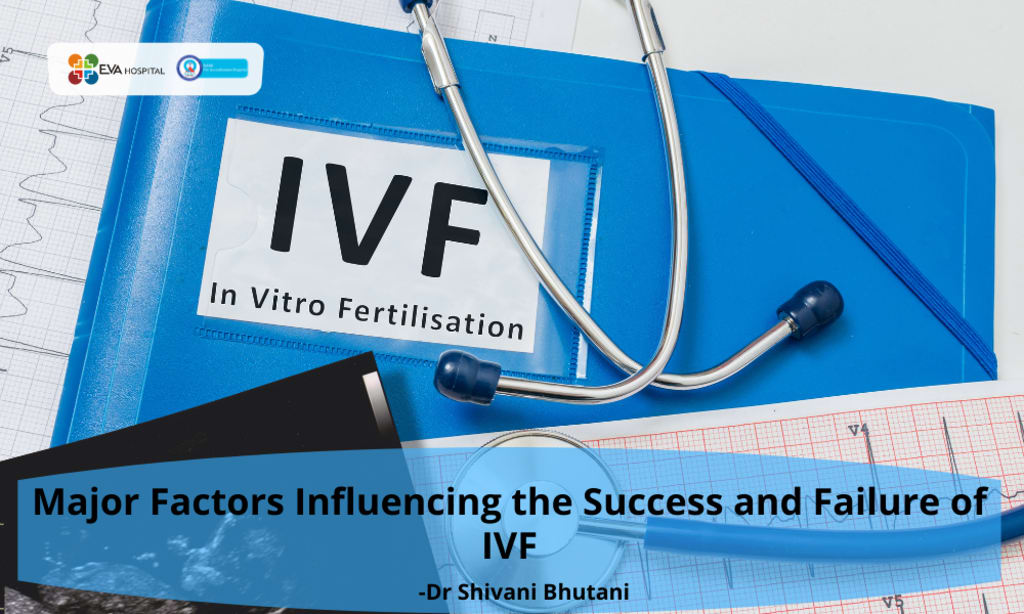Major Factors Influencing the Success and Failure of IVF
The first success of in-vitro fertilization (IVF) for women who could not conceive was in 1978. The process has evolved greatly since then and gave the joy of parenthood to countless couples around the world.

The first success of in-vitro fertilization (IVF) for women who could not conceive was in 1978.
The process has evolved greatly since then and gave the joy of parenthood to countless couples around the world.
However, according to statistics, the true success rate of IVF worldwide is less than 50 percent.
In other words, almost half of the attempts fail. That doesn’t mean the technologies aren’t that advanced.
They are, but for the most part, it is the unique position of each individual pair determines the success or failure of IVF.
Also, failure can be turned into success with the right doctors and medical examinations.
What is IVF or in vitro fertilization?
IVF is one of the many ways that can assist people with fertility problems to have a baby.
During the process, an egg is hatched from the ovary and fertilized with sperm in a laboratory or in-vitro. Simply put, conception occurs out of the womb.
The fertilized cell, known as an embryo, is then implanted in the uterus to grow and develop. It can be obtained from your eggs and your partner’s semen, or from one or both donors.
It mainly consists of five stages:
1. Ovarian Stimulation,
2. Egg Retrieval
3. Sperm Retrieval
4. Fertilization
5. Embryo Implantation
Any interruption or disability in any of these five stages can determine the outcome of the procedure.
Let’s define some words first
Ovum – egg, ova oocytes
Sperm- Male reproductive cells involved in semen
Ovaries- The female glands that let out two Ova
Uterus- the womb
Fertilization- The process of mixing of ovaries and sperm cells
Embryos – After fertilizing the eggs, they are called embryos
Also Read: How to prepare mentally and Physically for IVF
What factors affect the success or failure of IVF?
Because IVF is an emotional and expensive procedure, patients want to calculate their potential first.
We should know that pregnancy and childbirth are complex biological processes. Everything can be perfect but the results can be vague. Still, to proliferate your chances, select a fertility clinic with a high success rate.
However, when looking at the causes of IVF failure, infertility specialists are able to identify some specific factors that govern the attainment of fertility through IVF:
Non-availability of quality eggs
In general, when the female is in her most fertile years (near about 3 years), the ova have excellent condition and abundance, which makes fertilization easier. There are other factors besides age that affect the quality of oocytes.
If the mother does not have good eggs, she is less likely to get pregnant. Other options for Ova should be considered.
The age of the female
For the record, the younger a woman is, the more likely she is to have a completely normal pregnancy.
Advanced age affects infertility in different ways- egg quality, uterus and other biochemistry facts. However, IVF has been used effectively to assist women of all ages to achieve the joy of motherhood.
So, whatever your age, you are ready to explore the stage of IVF as an option. Although some put a lot of stress on the age factor, every woman’s body and medical history is unique.
You should consult your doctor, and choose extensive blood and ultrasound tests. Your doctor can then give you better advice about your candidature for IVF, not just on the basis of age.
However, if the female is going to use donor eggs, the effect of age can be ignored.
Fertilization failure or poor conception
As we have learned, fertilization occurs outside the body in-vitro, in a petri dish, so to mention.
Many female eggs (eggs) and sperm from males are kept in a uniform medium for fertilization or fusion.
If less than 20 percent of the ovum is conceived, it is considered bad. The success of IVF requires a large number of fertilized eggs. The higher the number, the more likely it is to be implanted.
Poor conception has been associated with primary infertility, low ovulation, and sperm factors.
Implantation Failure
Transplant failure is the most common factor in the success or failure of IVF. You see that after the eggs are fertilized, you get embryos.
IVF specialist doctors prepare many of them because not all of them will implant on the wall of the uterus and become embryos.
Not all fertilized embryos successfully attach to the uterus. Nearly 40% do. Certainly, doctors consider this and take action accordingly.
Yet it is biology. Despite doctors’ best efforts, transplantation can be successful or unsuccessful as per variables like age, low oocyte recovery, or embryo utilization rates.
Ovarian reaction
The combination of uterine health, responsiveness to IVF drugs, and aging are called the ovarian response.
A female’s ovaries lay one egg per month from an ova bank. Before starting the IVF treatment, medications are prescribed by doctors so that the ovaries can release more eggs per month.
If the woman already has fewer eggs in her bank and doesn’t respond to medications, IVF is suspect.
On the other hand, if the woman responds effectively to drugs, and lays many eggs, there is a much higher and healthier chance of success.
Quality of Sperm
Sperm plays an important role in the success of IVF. In order to fertilize an egg, the sperm should be healthy, have high motility, and be large in number (sperm count).
A healthy sperm releases enzymes that soften the membrane of the egg so that the sperm can enter the egg cell to fertilize it.
Although this is uncommon, because of chromosomal factors, sperm are unable to process the above.
However, this can be discovered before doctors go for such treatment. Male semen analysis helps doctors to identify the problem and prescribe treatment.
On the contrary, one can consider a sperm donor.
Conclusion
IVF is a miracle. This may be for you.
The above are only some of the factors. However, professionals at IVF centers consider the positive and negative factors and then outline the process of treatment to handle the problem and allow for a better chance of success.






Comments
There are no comments for this story
Be the first to respond and start the conversation.